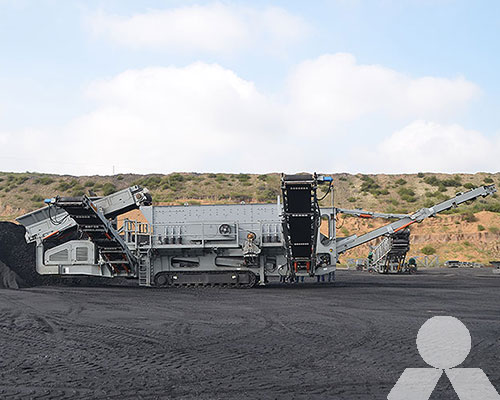How to choose between mobile crushers and stationary crushing plant
Choosing between mobile crushers and stationary crushing plants depends on several factors, including the project requirements, site conditions, budget, and future expansion plans. Both options have their advantages and disadvantages, so it’s essential to carefully evaluate your specific needs before making a decision. Here are some considerations to help you make an informed choice:

- Project Scope and Scale:
- If your project requires frequent relocation or involves crushing at multiple sites, a mobile crusher might be the better option due to its portability.
- For large-scale projects with a fixed location, a stationary crushing plant could be more suitable as it offers a higher capacity and stability.
- Site Conditions:
- Assess the terrain, accessibility, and environmental regulations at your project site. Mobile crushers are better suited for uneven or remote locations, whereas stationary plants require a solid foundation and may face permitting challenges in certain areas.
- Production Capacity:
- Determine your required production capacity and future growth expectations. Stationary plants generally offer higher capacity since they are larger and more permanent structures.
- Mobile crushers have a limited capacity, but they can be advantageous for smaller projects or when the required production volume is not excessively high.
- Operational Costs:
- Consider the operating costs, including fuel, maintenance, and labor. Mobile crushers may require more frequent refueling and maintenance due to their frequent movement.
- Stationary plants, once installed, have lower operational costs since they don’t need to be relocated frequently.
- Initial Investment:
- Evaluate your budget and financial resources for the project. Mobile crushers usually involve lower initial investment costs than stationary plants.
- However, if you have a long-term project or a stable site, the initial investment in a stationary plant can provide better returns over time.
- Flexibility and Adaptability:
- Mobile crushers offer greater flexibility, allowing you to adapt quickly to changing project demands or move to new locations as needed.
- Stationary plants are less flexible, but they can be optimized for specific types of materials and production requirements.
- Environmental Impact:
- Consider the environmental impact of your operations. Mobile crushers may emit more noise and air pollution during their movement and operation.
- Stationary plants might have a more significant impact during the construction phase but could have lower emissions during operation.
- Maintenance and Serviceability:
- Assess the availability of maintenance and technical support for both options in your region. Mobile crushers may require specialized service providers for repairs and maintenance.
By carefully weighing these factors, you can make an informed decision on whether to choose a mobile crusher or a stationary crushing plant that best suits your specific needs and project requirements. Additionally, consulting with industry experts and equipment manufacturers can provide valuable insights to help you in the decision-making process.









